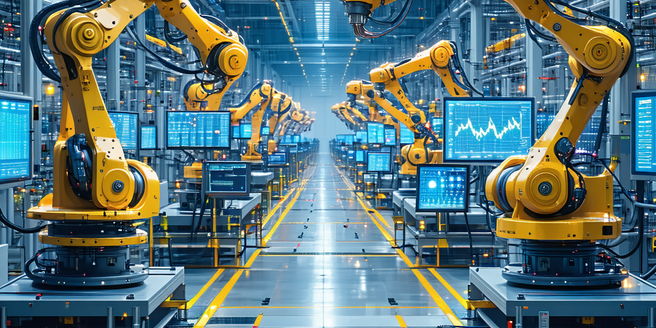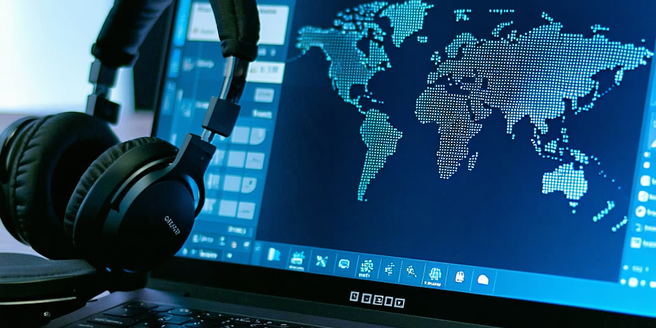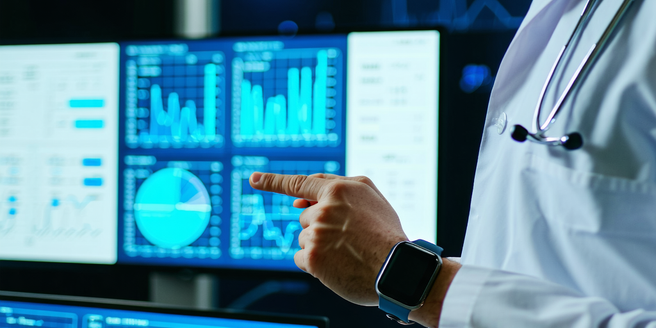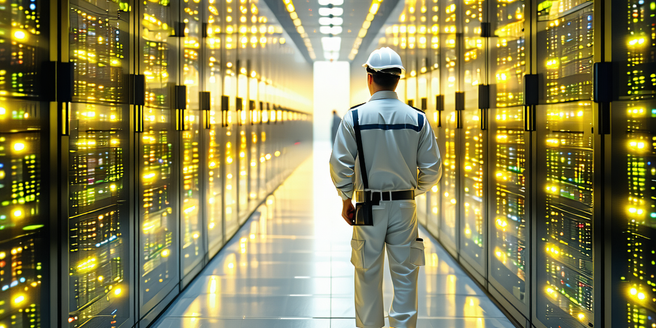
Drones In Agriculture
Drones are transforming modern farming by addressing agricultural challenges with real-time data collection and precision monitoring of crop health. Equipped with advanced sensors, drones capture comprehensive aerial views, detecting issues such as pest infestations and water distribution problems, ultimately improving farming precision and sustainability. They save time and resources by reducing labor-intensive field inspections. Drones offer high-resolution imagery that enhances crop monitoring, identifying nutrient deficiencies, and water stress with accuracy, allowing timely interventions that improve yield quality while minimizing losses. As part of precision agriculture, UAVs use GPS and remote sensing for detailed field surveys, optimizing planting, irrigation, and fertilization. Despite initial costs, drones can lead to long-term savings by reducing labor costs and preventing crop losses with early issue detection. Future trends involve AI integration, longer flight times, and improved regulations, ensuring drones play a crucial role in sustainable and efficient farming.

Digital Twins In Product Development
Digital Twin technology serves as a digital replica of physical assets, processes, or systems, enabling simulations for predictive maintenance, optimizing operations, and supporting real-time decision-making. By bridging the physical and digital worlds, digital twins enhance resource efficiency and contribute to sustainability. They are a fundamental component of IoT and Industry 4.0, transforming industries by providing a comprehensive framework for performance monitoring. Key benefits include enhanced product development, proactive maintenance, and improved collaboration across departments. Digital twins are finding applications in healthcare, optimizing energy usage, and driving innovation. In product design, they facilitate better simulations, accelerating innovation and reducing costs while ensuring superior quality. Success stories span aerospace, healthcare, manufacturing, and automotive sectors. Future trends highlight the integration of AI and machine learning, improved data privacy, and expanded IoT networks, setting the stage for more interconnected and efficient digital ecosystems.

Video Conferencing Tips With Virtual Tools
Video conferencing software is a vital tool for seamless remote communication, offering features like screen sharing, recording, and chat functions. Selecting software that fits your needs and becoming familiar with its basic operations, such as meeting scheduling and audio/video settings, enhances user experience and meeting productivity. Setting up an ideal virtual environment involves choosing a quiet, well-lit space, optimizing camera and audio setups, and ensuring a stable internet connection, all of which contribute to professional virtual interactions. Collaborative tools like instant messaging, project management, and document-sharing platforms enhance team collaboration, while virtual meeting best practices, such as setting clear agendas and utilizing engagement tools, keep sessions interactive and focused. Troubleshooting common issues by checking hardware settings and ensuring software updates can help maintain smooth virtual meetings. Leveraging advanced features like breakout rooms, annotation tools, and automated transcriptions can further boost productivity and engagement during virtual sessions.

Enhancing Remote Team Collaboration
Enhance your website's SEO by focusing on key insights for remote team success. Highlight how technology facilitates seamless communication through video conferencing, instant messaging, and cloud-based platforms, enabling effective collaboration and real-time interaction. Emphasize the importance of building trust in virtual environments by establishing clear communication, setting transparent goals, and engaging in virtual team-building activities. Showcase effective project management tools like Trello, Asana, and Jira that streamline workflow and enhance accountability. Underline the significance of establishing clear goals and expectations using platforms like OKRs to drive team success. Promote an engaging online team culture through regular interactions, inclusivity, and recognition programs, which improves morale and productivity. Finally, stress the importance of flexibility and work-life balance by encouraging flexible hours and wellness programs to prevent burnout and enhance overall wellbeing.

Video Call Preparation
Choosing the right video conferencing tool is essential for successful virtual meetings. Consider your specific needs, including participant capacity, collaboration features, and platform compatibility. Look for features like screen sharing, recording, and application integration. Evaluate the user interface, ease of use, and security features to protect data. Popular options include Zoom, Microsoft Teams, and Google Meet. Proper equipment setup enhances call quality; ensure you have a high-resolution camera, reliable microphone, stable internet connection, and good lighting. Create a distraction-free environment with a quiet location, tidy background, and minimized notifications. Test audio and video settings prior to calls to prevent technical issues. A clear agenda and effective communication techniques, such as speaking clearly and using active listening, boost engagement.

Wearable Tech For Fitness Monitoring
Explore the fast-evolving world of wearable technology, where devices like smartwatches and fitness bands serve as personal health monitors. With the ability to track heart rate, steps, and sleep patterns, these gadgets offer real-time insights, helping users make informed lifestyle choices. Among the top picks for fitness enthusiasts are the Apple Watch, Fitbit, and Garmin, each offering unique features such as GPS tracking and heart rate monitoring. Selecting the right wearable involves considering factors like compatibility, battery life, and essential features tailored to your fitness goals. Future trends indicate an exciting growth in AI capabilities, biometric sensors, and eco-friendly designs, transforming wearables into comprehensive health management tools. Stay ahead of the curve by understanding the key benefits and trends in wearable fitness technology.

Screen Sharing Software For Effective Collaboration
Screen sharing software plays a crucial role in enhancing remote collaboration by offering features such as screen/application window sharing, annotation tools, and integration with other collaboration platforms like chat, file-sharing, and video conferencing. Advanced software options include remote control features, which are useful for technical support and interactive workshops, and security measures like encryption and two-factor authentication to protect sensitive data. Screen sharing benefits team collaboration by improving understanding, fostering real-time communication, and reducing the need for physical meetings, which promotes inclusivity and flexibility. Popular software for remote teams includes Zoom, Microsoft Teams, Slack, and Google Meet, each offering unique features and integration capabilities. Selecting the right tool requires evaluating feature needs, security, usability, scalability, and pricing. Best security practices involve using encrypted tools, verifying attendees, and managing screen visibility to protect data during sessions.

Augmented Reality Glasses
The evolution of augmented reality (AR) glasses marks a significant transition from bulky, niche devices to compact, consumer-friendly technology. Initially restricted to sectors like military and industry, AR glasses have advanced with high-resolution displays, integrated cameras, and seamless connectivity, making them relevant for both personal and professional use. Modern features include transparent displays, sensors, and voice control, transforming them into versatile tools. Industries such as healthcare, manufacturing, retail, and education are leveraging AR glasses for innovative solutions and enhanced efficiency. Despite challenges like privacy concerns, form factor, and high costs, ongoing innovation is expected to integrate AR eyewear seamlessly into everyday life, driven by advancements in AI and miniaturization. As accessibility increases, AR glasses are set to revolutionize interaction with digital content across various fields.

Wearable Sensors In Health Monitoring
Wearable sensors are transforming healthcare by continuously collecting real-time data for health monitoring, ranging from general fitness to chronic disease management. These devices, which include smartwatches, fitness trackers, and specialized sensors, help monitor heart rate, physical activity, sleep, and other health indicators, enabling proactive and personalized healthcare. They promote preventative health measures and improve patient engagement, especially through remote monitoring, which reduces the need for in-person visits. Despite their advantages, wearable technology faces challenges such as data privacy, accuracy, integration with healthcare systems, and cost. Future trends include the incorporation of AI and machine learning for advanced data analysis and sensor miniaturization for improved usability.

Crafting A Motivational Playlist
Music significantly influences emotions and productivity, acting as a motivational tool by releasing dopamine and reducing stress. It enhances focus, mood, and endurance when tailored to activities like exercising or studying. Choosing the right genre is crucial, with pop, rock, or electronic enhancing physical activities, while classical or jazz suits concentration. Uplifting tracks with fast tempos and positive lyrics inspire action and maintain energy. Personal favorites add sentimental value, reinforcing motivation through familiar and emotionally resonant tunes. The sequence of songs should maintain momentum, starting with energizing beats and mixing tempos to prevent burnout. Regularly updating the playlist keeps the motivation fresh and effective, ensuring it remains a dynamic tool for personal motivation and goal achievement.

Innovative Apps For Collaborative Brainstorming
In modern workplaces, collaborative tools are transforming the way teams operate, especially as they become more geographically dispersed. These tools enable seamless digital communication and interaction, ensuring teams remain synchronized regardless of location. By facilitating the sharing of ideas, project management, and real-time feedback, they significantly boost productivity and creativity. As remote work gains traction, the utilization of features like cloud-based storage and real-time collaboration makes these tools increasingly vital. Businesses adopting these tools can better tackle challenges and enhance efficiency, securing a competitive edge. Effective brainstorming apps with features such as real-time collaboration, intuitive interfaces, and secure cloud storage are crucial for capturing ideas and enhancing creativity. Leading apps like Slack, Trello, Asana, Zoom, and Miro are revolutionizing team collaboration with their unique capabilities, from communication to project management. Integrating these apps into workflows requires strategic planning and training to maximize their benefits and create a cohesive, productive work environment. Industry success stories highlight the significant gains achieved by using the right collaborative apps, driving innovation and efficiency across various sectors.

Ensuring Data Security In Cloud Collaboration
Understanding cloud security is essential for protecting data, applications, and infrastructure in cloud computing. Key aspects include securing data movement, encryption, and staying updated on security trends. It’s important to comprehend service models like IaaS, PaaS, and SaaS, and shared responsibility models for clear security task delineation. Cloud collaboration faces threats such as data breaches, insider threats, account hijacking, and DDoS attacks, requiring vigilant security protocol updates. Implementing best data protection practices involves robust access control, regular software updates, employee education, data encryption, and multi-factor authentication. Encryption is critical for transforming data into unreadable formats to maintain confidentiality and integrity. Regular monitoring and compliance checks help detect suspicious activities and ensure adherence to industry standards, reinforcing cloud security strategies.